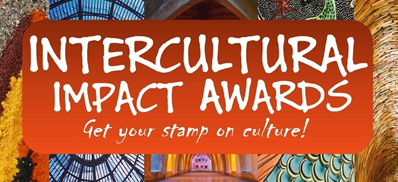Hi Jill! Can you tell us about your role in the ICS Project?
you tell us about your role in the ICS Project?
I initiated the project with Ali Dickens. My main role has been to develop the training for academic and professional services staff. The workshops for academic staff focus on how to get the best out of multicultural student groups, looking at aspects which can be challenging, such as group work and participation. The workshop for professional services staff explores cultural awareness and intercultural communication. I also co-organised the conference that we held in April 2015. As well as this, my role includes arranging the lunchtime seminars for staff. These give colleagues across the university the chance to disseminate best practice or research more widely. The topics covered so far have been the Business School’s Peer Support programme for PGT students; how internationalisation of the curriculum can be developed; and a presentation on the curriculum innovation module Intercultural Communication in a Global World and its sister module Intercultural Communication. I’m also working to try to develop the staff network
What kind of response have you had from around the university?
The response from staff has generally been along the lines of ‘thank goodness there is finally a way of connecting with others in our situation’. The workshops and seminars give colleagues an opportunity to share best practice, and a sense of relieve that that they are not struggling with the challenges alone. It’s been heartening to discover some of the wonderful intercultural events and projects around the university, and to help raise awareness of these.
What would you like the legacy of this project to be?
We received funding for two years, and only have a few months left. We hope that collaborations and networking will continue, which is why we are keen to develop the staff network as a way for colleagues to contact each other. We have a dedicated page on our website for this. I also think it’s critical that we continue to run the workshops – we have seen that demand is there, and shows no sign of decreasing yet. Ultimately I would like to see “the intercultural” embedded in everything the university does, so there is no need to have a project on the topic!



Dear Jill,
I am interested in this topic and this looks like a thoroughly worthwhile and fascinating area to be involved in. Could you share some examples of best practice collated which could be of benefit to many university lecturers?
Also, do you feel we should support international students to think and act according to the dominant pedagogy, or should HE staff make some adaptations to their practice?
Many thanks,
Peter
Hi Peter, thanks for your comment and your interest in the project. At the moment we don’t have a set of best practice examples that we can share outside the workshops we run. We tend to look at scenarios and work through them, with participants sharing best practice ideas orally. My feeling – and this answers your second question too – is that it’s difficult to effectively share activities because each context is unique. In the workshops we look at some of the things that can be challenging – for all students, and for lecturers – and consider whether adaptations to pedagogy might be worth considering. Underpinning all our workshops is the notion that although we use terms like ‘international students’ and ‘home students’ as a kind of shorthand, they are not homogenous groups. We begin each workshop by discussing this.
We’re starting to build a network, and you might find it useful to contact some of the staff who already have profiles on our webpages.
Jill